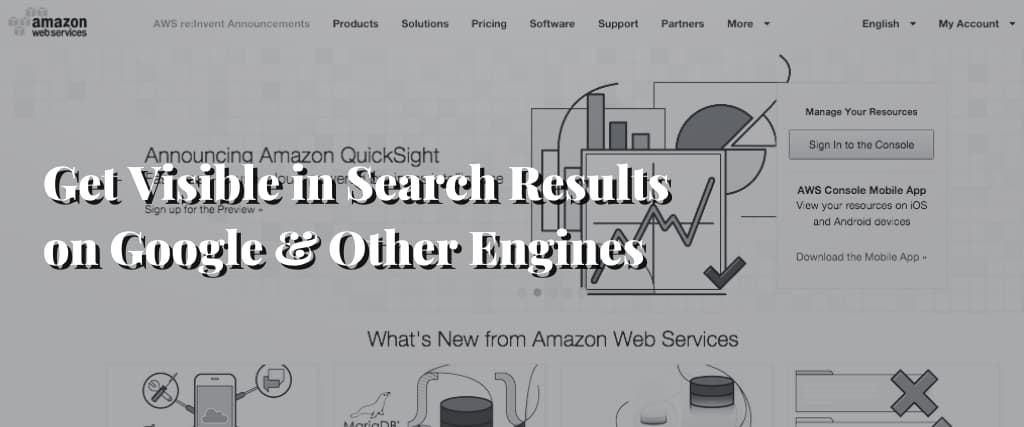What is fair pricing for an Amazon web hosting server? When are you sure you aren’t paying too much?
Don’t fret; I’ll be here to lend a hand.
In my post, I cover all the bases of Amazon Web Service (AWS) ‘s various pricing structures. I will also discuss Amazon Web Services cloud infrastructure.
Okay, so let’s get going.
How Does Amazon Website Hosting Work?
Hosting your web app or website on a server makes it available online and accessible from any computer, smartphone, or tablet.
The many different types of data that make up a website or web app necessitate using specialised computers known as servers. Your web host is responsible for the hardware and servers you rent to store your data online.
When using a web hosting provider, you may focus on the site’s primary functionality rather than worrying about technical details like backups and updates.
Your company needs a website, and you must have a location to keep it.
Using Amazon’s web hosting service, you may save your web application or website on Amazon’s servers and access it from any device.
Meanwhile, Amazon Web Services (AWS) web cloud hosting provides an application that provides virtual machines (VMs) similar to computers (complete with RAM, storage, and processing power) for rent.
You can scale up whenever you need to, only paying for the resources you employ.
Utilisers of Amazon Web Services

SAP
SAP (New York Stock Exchange: SAP), a German technology firm, comes in at number fifteen on our study for companies that rely on WWS. SAP is a software company that began in Weinheim in 1972 but now has its headquarters in Walldorf in Germany in Baden-Württemberg.
The global firm creates enterprise HR, finance, and customer service software. 2008 SAP was the first enterprise to use Amazon Web Services, making it the pioneering cloud platform.
Originally founded as Systemanalyse und Programmentwicklung, the company changed its name in 2005 to SAP AG. They are “the third-largest software corporation globally,” according to The Times of India in 2001.

TTM- Tata Motors
Fourteenth on our list of AWS users is Tata Motors. Tata Motors produces more vehicles than any other Indian firm. It started in the first quarter of 1985 and has headquarters in the Indian city of Mumbai in Maharashtra.
It is a subsidiary of the Tata Group of Companies in India. Automobiles, trucks, coaches, sports cars, military vehicles, construction equipment, and vans are just some of the products that Tata Motors produces.
The Tata Engineering & Locomotive Comp. (TELCO) was the company’s original name, which has since changed.
Dharwad, Pune, Sanand, Lucknow, Pantnagar, and Jamshedpur are some of its Indian manufacturing facilities. Thailand, South Africa, Argentina, and the United Kingdom are only some foreign locations where it operates.

NVS- Novartis
Novartis (NVS) is a Swiss pharmaceuticals multinational headquartered in Basel. In 1996, Sandoz Laboratories and Ciba Geigy merged to become what is now known as Novartis International AG.
Its most notable creations include the medications a drug called carbamazepine (Tegretol), deferasirox (Exjade), imatinib mesylate (Glivec/Gleevec), methylphenidate (Ritalin), clozapine (Clozaril), diclofenac (Voltaren), valsartan (Diovan), letrozole (Femara), cyclosporine (Sandimmune/Neoral), and terbinafine (Lamisil).
The pharmaceutical company is involved with the Pharmaceutical Manufacturers and Research Association of the United States (PhRMA), the Worldwide Federation of Pharmaceutical Processors and Their Associations (IFPMA), and the European Group of Pharmaceutical Companies and Organizations (EFPIA).

Pfizer Pharmacia (PFE)
Pfizer (New York Stock Exchange: Potential Future Exposure) is a New York-based, American global pharmaceutical company.
It all started in 1849 in Brooklyn. Among the world’s top pharmaceutical companies, Pfizer placed 64 on the Fortune 500’s ranking of the 500 largest American companies in 2020 based on total sales.
Cardiology, immunology, oncology, endocrinology, cardiology, and neurology are just a few of the specialties that benefit from the company’s research and development efforts. They have also created a prototype vaccination to stop the spread of the coronavirus. The trial run of the vaccination has been fruitful thus far.

UL, Unilever
Unilever (UL) comes in at eleven on our list of corporations using AWS. UL, or Unilever, is a publicly traded British conglomerate.
The company, which has its headquarters in the UK’s capital, manufactures a wide range of consumer goods, such as candies, baby food, ice cream, energy drinks, beauty products, pet foods, breakfast cereals, soft drinks, cleaning agents, personal care, pharmaceuticals, and medical supplies for consumers.
The Lever family established the company in 1929. The company has earned a reputation as the largest soap manufacturer worldwide. It serves clients in over 190 different nations. The conglomerate is the owner of approximately 400 different brands.

Walt Disney, Inc. (DIS)
Disney, or the Walt Disney Co. (New York Stock Exchange: DIS), has become an American global entertainment and media behemoth. The Walt Disney Animation Studios in Burbank, a city in California in the United States, serves as the company’s headquarters.
Before 1986, People first called Walt Disney the Disney Brothers Animation/Cartoon Studios, after Roy Disney and Walt Disney, the studio’s founders.
It creates a wide range of animated, live, and action movies and shows for television. The global theme parks that the company owns and operates are another source of pride.

Sony Symbol: SNE
Tokyo, in Konan Minato, is home to the headquarters of the Japanese multinational corporation. Masaru Ibuka and Akio Morita established Sony (New York Stock Exchange: SNE) in 1947. From its inception until 1957, it went by Japan Tsushin Kogyo, Limited.
As a global leader in the production of digital goods, it serves both the consumer and business markets. It also ranks as the second-biggest publisher of video games and the second-biggest musical label. On the Fortune 500 global list for 2020, it comes in position #122.

Hitachi Toyota (HTHIY)
On our list of businesses using AWS, Hitachi is number eight. Hitachi is another Japanese global corporation with headquarters in Chiyoda, Japan. In 1910, Japanese entrepreneur and philanthropist Nahmiheo Odaira, an electrical engineer, created the company in the prefecture of Ibaraki.
Technology, the Internet of Everything, artificial intelligence, infrastructure, and big data are just a few areas where the multinational firm operates. In 2012, Hitachi placed #38th on Fortune’s Global Five Hundred and #129 on Forbes’ GlobalTwo Thousand.

JNJ, Johnson and Johnson
Established in 1886 and headquartered in New Jersey, in Brunswick, USA, Johnson and Johnson (JNJ) is a multinational conglomerate that trades on the New York Stock Exchange under the “JNJ.” The multinational corporation creates a vast array of healthcare equipment, CPGs, and pharmaceuticals.
On the Fortune 500 list for 2018 of the top American corporations by earnings, Johnson and Johnson Inc comes in at number 37. Its most recognisable brands are Baby, Neutrogena, Band-Aid, and Tylenol face care and medications.
The GE Corporation- (General Electric)
Another New York-listed, Boston-headquartered American global conglomerate is General Electric (New York Stock Exchange: GE). It has various business interests, including the aerospace, medical, digital, electrical, renewable energy and venture capital businesses.
Its doors first opened in 1892. In 2011, it placed 14th in the Fortune Twenty most lucrative businesses. It has had two employees win the Nobel Prize.
Why Is It Crucial to Have a Website Hosting
The subject of whether or not it’s necessary to have a website is becoming increasingly prevalent as businesses move their attention and resources online.
I’ll save you some time and effort by answering directly: yes, businesses do need a website. There are several benefits to having a website.
Unless you’re the type of guy, who pretends to have a “company” without executing anything, but if you’re serious about starting a business and need people who regard you seriously in business, you should get online as soon as possible.
This article will examine the top twenty reasons why owning and maintaining a website is important.
Defining Goals and Objectives
Everyone on the web has come to expect professionalism when interacting with corporations.
A well-designed website satisfying user expectations is crucial for any company’s success. Research shows that consumers spend considerable time learning about a business before purchasing.
According to the data by Pymnts, 88% of consumers do online research before making major purchases.
Give that some serious consideration. Before making any kind of decision, people are doing extensive online research. What good are you if you are still looking for someone when you do not own an official website?
Helps You Put Yourself Out There
Your company’s website serves as an online brochure. You are still determining who you could be and what business you are into. You may contact potential clients and inform them about your business if you have a website.
Expand Your Online Audience.
This is the digital age, after all, and people are always on the lookout for new technology to learn and use. Yellow pages and a telephone book were the only options back then. There were adverts and contact information for all of the listed businesses.
You’d look through the yellow page for a local business or service. The fundamentals of searching for service have mostly stayed the same despite technological advances.
It’s easier than ever to get online and find the information they need. Whatever you’re looking for—a nearby eatery to see what’s new on the food menu or a nearby delivery service—you can find it online today.
Anyone who is a company owner should not take the chance of being unreachable because you lack an online presence. Customers are currently residing online, so you must meet them there.
Boost Your Company’s Respectability.
Imagine you’re a buyer: Would you ever trade with someone you’ve never met without knowing where he is?
Why would you do it? When someone wants your product or service, they are more likely to look up online.
Is it essential for a company to have a web presence (a website)? They provide credibility and trust to your company. This ensures that your company appears trustworthy. They help establish credibility.
Visitors to your website are looking for knowledge, and if you give it to them, along with supporting evidence like reviews, feedback, and awards, you’ll have come a long way toward making a sale. With a website, this is possible.
Your rivals are using It to research what other people are doing. You need to have an internet presence if your competitors do.
Nowadays, people look for any and every information online. Who do you think is running a successful business and turning a profit if your rivals treat their companies with the seriousness they deserve and make every effort to get their websites in view of as many people as possible online? No, not you at all!
Enhancing Social interactions
When considering networking opportunities, seminars, meetings, and local business clubs come to mind. Those are acceptable, and they make sense in their particular contexts.
It’s fantastic to network with people from both sides of one’s field at conferences like these. Getting your name out there and meeting new people is crucial to the success of any company, and networking events like these are ideal for doing just that.
Owning a website allows you to connect to individuals you have never met. You must physically attend meetings and conferences to network traditionally (as described above). Having an online presence eliminates the need for this limitation.
People will constantly link to your site, provided it is popular. If your website is helpful and you have established yourself as an expert in your field, you may receive invitations to speak at conferences or serve in similar capacities.
This is only one possible outcome, but hopefully, you can see that the possibilities for expanding your professional circle are practically limitless.
Market Your Goods and Services
Creating a website allows you to advertise your goods and services to a broader audience.
As previously noted, websites are a fantastic tool to introduce curious onlookers to your work.
Whether selling a physical product or providing a service, a website is essential for showcasing your wares to potential buyers and converting them into paying clients.

Get Visible in Search Results on Google & Other Engines
You ought to understand that Google search engine is one of the most prominent search engines out there and may deliver large amounts of visitors to your web page, but you need a website to have a chance of appearing on Google.
If the Google gods ever make your firm visible with no website, you’ll be doing yourself a great favour. We doubt that will occur, and we suspect it is not what you want to happen. If you have a website, you’ll have a far better chance of showing up in Google search results for people looking for your product or service.
The article claims that every day, Google processes more than 3.4 billion Google searches (and that’s just Google, not including additional engines like Oath, Microsoft or Bing!).
That implies individuals are looking for your company as you read this sentence! You, as a company owner, should be concerned that your potential customers will find your rival businesses instead if you don’t have a website. Are you sure that you’d like that?
Boost Your Revenues
This discussion of Googling and other search engines serves as a segue to the ultimate goal: boosting corporate revenue. A company has succeeded if it makes money.
More than simply having an internet presence, optimisation is essential. Building and releasing a website is only half the battle. You must still work to improve your website’s position on the SERPs of search engines if you want people to visit it.
The greater the exposure of your web page, the higher the volume of visitors and consequent purchases. If you have a web page, you may use it to your advantage by optimising it to rank higher than your competitors.
Exhibit Your Previous Work.
Would it be fantastic if those who contacted our company made purchases? That sounds fantastic, but it’s different.
Website viewers carefully examine your content. They are trying to learn everything you’ve posted. They would like to view your portfolio to assess your painting skills. They require easy access to this data.
Now picture yourself without that nugget of knowledge when people who are genuinely interested in what you have to offer to arrive.
If visitors cannot quickly find the knowledge they need on your site, they will fail to make a purchase and leave the company’s website feeling frustrated. That leads to unhappy customers who can discourage others from trying out your product.
Owning a website helps with this issue. One perk of owning a web page is the way it provides you with a place to display your work for potential clients to peruse.
Displaying Testimonials and Reviews
Most of us remain wary of new websites in general because of the unpredictability of the web, and your own will be the same. A wide range of people use the internet, which means it can be dangerous to be comfortable in.
That should be motivation enough to earn the trust of your potential clients. Of Naturally, it can be simple to proclaim absurdly excellent things about oneself (since who would not want to laud oneself? And write endlessly on your web page about all the wonderful things you have achieved for the world, but no one will believe you.
Thus, testimonials and reviews are excellent third-party verification for your company. They give satisfied customers a platform to brag about you, inspiring trust in your business and practices among your target audience.
Reviews are among the most influential factors in a customer’s final purchase decision. Positive feedback from satisfied customers can dramatically alter the course of a company’s future.
Spend Less on Promotion/Marketing/Advertising.
We are not saying ads are useless, but you should have an internet presence when you run a business since it will save you money.
The costs of maintaining and updating third-party programs can add up quickly for individuals without a website. Consider the advertising method of marketing via email as an example.
Although marketing via email is an excellent tool for expanding your consumer base, it is only sustainable for sustained growth with significant investment.
When put next to owning a website, it becomes clear that webpages can complement other forms of marketing (email advertising included) quite well. The reason for this is that your internet presence is an excellent promotional tool in and of itself.
The content that appears on your web page is entirely under your direction. When you combine it with well-written articles and blog posts on a few topics, you may start dominating the web without paying a dollar for advertising.
Always on Advertisement and Window Shopping
Everyone enjoys going shopping. However, it can take time to find the opportunity to do so in the modern age. Something always comes up, a few errands to complete, that utterly derail your shopping schedule.
Isn’t it nice to go shopping whenever it’s most convenient? That’s the cherry on top of a delicious dessert. Web pages are the proverbial cherry on top. If you own an online store, you can keep it open around the clock, seven days a week, without ever needing to post a “closed down” sign.
A growing number of individuals are going online to do their shopping these days. With the explosion of online retailers over the past decade, you can have almost anything you want to be delivered to your door regardless of whether you place your purchase at 3 in the morning.
Share Your Work
A functional website allows a company to communicate with its audience by creating and distributing written material. Websites may be a fantastic creative outlet for writers. Even if you don’t, it’s a terrific way to keep your customers updated on your work and what is on the horizon.
Having a website opens up a world of possibilities. You may generate excitement for your forthcoming goods by showcasing them now. Excellent blog entries outlining your offerings are within your reach.
Make an amazing video clip showing your recent vacation to share with the staff. You can design a contest with a fun giveaway and target people who buy a lot.
You can only generate so many ideas and concepts in your head. If you make it a practice to produce amazing content, you’ll always have an eager audience waiting to read and spread what you’ve written.
Engage Your Clients in Decision Making
When conducting business conventionally, your clients must work around your schedule. You may be a storeowner whose business is open at specific times daily.
Only during certain times will your consumers be able to stop by your online shop and interact with you. If you do this to a potential customer, you can be sure they will go elsewhere to satisfy their requirements.
The value of a web page becomes clear in this context. It empowers your clientele to decide how they want to communicate with you. They can look for specific details and quickly find what they need on your site. Your clients will appreciate the convenience of not travelling to see you gain a solid grasp of what you offer.
Your Employees’ Central Resource Location
The intention of the website’s designers is different from having everyone read everything. Suppose you have succeeded with a specific procedure and would like your staff to replicate it. In that case, consider setting up a secure area where they can see training materials like manuals and video presentations.
A central location where employees can acquire information and assistance is a great way to increase productivity, particularly in the service sector, where everything can quickly get hectic. Having these kinds of guides, manuals, and tutorials readily available would prevent them from wasting time fruitlessly flailing about for help while they get nowhere.
In addition, having a website with an entirely devoted resource makes it much simpler to teach new personnel.
Useful in Reducing Stress and Wasting Less Time
Have you wondered what it would be to spend time on a cellphone and respond to questions in rapid succession? Let’s amend that to read: identical questions again and over.
What a pain in the neck! While businesses must address consumer concerns and answer questions before, during, and after purchases, repeating yourself a million times can get tedious.
This is a primary function of a website’s frequently asked questions (FAQ) segment or FAQ webpage. The goal of the FAQ (commonly asked questions) section is to provide explanations for common concerns.
The FAQ section of your website collects and addresses these groups of frequently asked queries, providing a forum to alleviate the concerns of consumers considering purchasing your goods or services.
You Can Quantify Everything
If you’re a smart business owner, you’ll examine your marketing expenditures to see if they yield the desired results.
Is there a breakdown of who saw your advertising and who responded? The only thing you’ll learn from the old-school advertising methods, like billboards and print publications, is how much it costs to get your message out there.
You need more information to fine-tune your upcoming marketing action. With a web page, you can readily analyse all the relevant data and decide what to do next.
You can set up a web analytics app on your web page.
Google Data analysis is a cost-free and highly regarded one that will track the number of visitors you have had over time, the number of visitors who are still engaged on your web page, and which pages are most popular on your web page.
The locations from which visitors to your website originate, the devices they own and use for accessing the website, the percentage of visitors who came to your site organically, the percentage of visitors who reacted to your ad campaigns, and much more.
Analysing your site’s metrics will highlight areas where you fall short of the competition. Possible results include webpages where individuals land on but quickly leave. This will allow you to rethink and revamp that page’s content to keep readers engaged.
People that find your site through Facebook ads may also provide a higher return on your investments (ROI). To increase profits, you may increase your Facebook advertising budget.
You can imagine how this will impact future advertising campaigns and how helpful it will be to analyse and use such data effectively.

Maintain Your Social Media Presence Amid Declining Audiences
If you believe maintaining an active presence on social networking sites like Twitter and Facebook is enough to sustain your company, think again.
Social media platforms should, without a doubt, be a part of any marketer’s toolkit, but it is an entirely separate ballgame if that’s all you offer to bring in clients.
There have been rumblings that Facebook’s organic reach has dropped to an all-time low of 3 per cent. As a result, only 30% of a page’s followers will view any post, while 97% of those who follow will miss it entirely.
Mark Zuckerberg has several explanations as to why this is taking place:
However, recent user feedback has shown that publicly accessible information (such as business posts, media, and brands) is drowning out the more intimate moments shared by friends and family.
The Declining Influence of Social Media
Right there, in the words of the horse itself. When the organic reach of social media postings and comments is so low, should you continue to put your money into them?
Of course, you shouldn’t do it. Your company’s website is an important online asset; the two should function together.
Exchange Social Media Advertisements.
This provides a fantastic quality that will never again be available through traditional advertising channels.
You can only do something after a certain point if you’re a business owner who has tried traditional marketing methods like putting up a billboard to promote your company. All you can do is cross your fingers and hope that someone responds to your ad.
But if you run a site online, you may use tracking tags to monitor your visitors’ movements across the web. Despite its unsettling reputation, this strategy can significantly boost your company’s bottom line.
In and of itself, owning a website is a substantial enough benefit to make it mandatory for anyone engaging in internet advertising. The benefits you receive will undoubtedly outweigh the time and work required to set it up.
If you’re a company proprietor (or have entrepreneurial aspirations) and have read this far, you likely better understand why having a web page is important. You can contact us for assistance should you need more technically savvy help to create one independently. We hope to help your company soar.
Features of a Web Host
The firm you choose and the plan you choose as a web host are essential to the success of your business, both now and in the future. After all, the provider you select will directly impact your website speed, dependability, and safety.
You will also want to ensure your host provides additional necessities like reliable email, management services, ample storage, etc. Your company could collapse if you pick the wrong web host, so we’ve compiled this handy checklist of must-have features to guide your search.
Access to Qualified Technical Assistance Around the Clock
Suppose your web-based shop is always accessible, and your mission-critical applications function without interruption. In that case, you’ll appreciate the peace of mind of knowing you can reach out for assistance whenever required, no matter the time of day.
When we say “technical support,” we mean a professional who may assist you in fixing your difficulties over the phone. Keep in mind that for each second that your service is down, you are losing money.
If you’re running complicated systems and using advanced tools to manage your business, having access to assistance at all hours of the day is crucial as you expand.
Protective Measures
A remote restore and recovery service is another indicator of a reliable host. The loss of your website’s email, content, customer information, financial and sales statistics, and stock records would have catastrophic consequences. Many businesses cannot survive a catastrophe of this magnitude.
Your web server must offer a reliable backup solution to help you keep your data safe. So ensure you keep track of recent sales; for instance, you’ll need regular backups if you’re selling things nonstop.
Keep copies of your data at a location separate from your live servers. You can still access your backups even if the system crashes.
Also, check that your site host creates backups of their servers. You should ensure a backup server in place in case the primary server goes down for any reason from the host’s perspective.
Availability Guaranteed and 100% Uptime Assurance.
Having a web page that is constantly down is a nightmare. It makes a poor first impression on site visitors, hurts SEO, and drives customers away.
This may occur if your communal server is overcrowded, has outdated software, or requires frequent maintenance. Select a shared hosting provider with a minimum uptime of 99.95 per cent.
With more advanced hosting options like dedicated servers and cloud computing, you should prioritise high availability. In other words, you need assurances that the server will be available at least 99.99 per cent of each day, if not 100% of the time, like with our business cloud hosting.
Service Administration
You can spend your time in a better way running your business, not caring for the server hosting your website. You won’t have to worry about administration with a reliable service provider.
This means they regularly pat and update the server’s computer’s operating system.
If you’re looking for a more specialised service level, consider developing custom-managed services with your provider.
Check that your host offers managed hosting services if you need them.
Strong Safety Measures
Cybercriminals may check millions of web pages and systems daily for vulnerabilities using advanced hacking software. Almost every online service and computer is vulnerable. If a hacker discovers a flaw, they will attempt to exploit it.
This is why finding a hosting service that offers robust security measures to protect your site from any possible dangers is essential. Firewalls, intrusion detection, email scans, SSL encryption, spam filtering, and similar measures are required.
The fallout from inadequate security is terrifying. Data theft, ransomware, and virus distribution are all real threats to your website. In that case, you may be subject to hefty fines.
Assistance With Migration
Changing web hosting providers on your own might be a complicated technological process. The majority of modern web hosting offers a free migrating service. This implies they will relocate and test your web page to ensure a smooth transition.
Hosting companies that don’t offer this feature may need more personnel or knowledge to handle your request. That could cause problems if it turns out to be true.
WordPress-Specific Help
WordPress now powers about 30% of all web pages. However, despite its widespread use, only some hosts have the infrastructure or company technological expertise to accommodate its peculiarities and requirements.
Check that your host provides WordPress-specific services, such as customised WordPress website hosting and WordPress technical assistance, if you intend to use WordPress.
Potential for Sustained Development
Reliable web hosting will supply you with whatever you require to expand your business. A web page that starts small and uses shared hosting may grow into a large corporation that requires an approach that combines personalised servers with private and public cloud hosting in the future.
Your host must provide every possible hosting option to facilitate your growth from infancy to maturity. In addition to offering all of these features, they should also make it easy to upgrade if your needs change, such as from a shared server to a virtual private server (VPS) and then from a VPS to a cloud server or a dedicated server.
Scalability
To expand at your speed and have temporary additional capacity to address spikes in consumer demand, scalability is crucial for many firms that rely on cloud hosting.
As Cambridge University discovered when they first made Stephen Hawking’s Doctor of Philosophy available online, sudden interest spikes might knock your IT infrastructure offline if you still need to prepare for them.
The beautiful thing with scalable resources is that one only has to temporarily upgrade to a bigger subscription because you can purchase them per user. Check that your server offers scalable resources if you anticipate your site needing them to cope with periods of greater traffic.
Intuitive Control Interfaces
Managing the server or website’s backend might be a hassle without a friendly interface. The most prominent and user-friendly control panel for Linux-based computer systems is cPanel. Plesk is a management interface for Windows-based servers.
The dashboard-style interfaces in both management panels make it simple to make adjustments, perform maintenance, and install new software with only a few mouse clicks.
Amazing Email
While being able to receive and send emails is a standard feature offered by many web hosting packages, sometimes more advanced features are required. If you have a decent host, they will scan your messages for malware and spam and ensure your mail server is not blocked daily.
Verify that your chosen provider allows interaction with popular services like Outlook and has features like tasks and calendars and sufficient file sharing, storage, webmail and mobile access.
Digital Security Seals
If you sell online, you must ensure your consumers’ financial information is safe. Most web servers offer complimentary secure sockets layer (SSL) certificates to encrypt your data.
If your websites lack Secure Sockets, Google will label your web page as “not safe,” some payment gateways won’t let you sell things straight from your website (you might have to redirect customers elsewhere to complete the transaction).
Antivirus providers have advised their users to avoid visiting sites that don’t employ certificates with SSL encryption (those with URLs that don’t begin with “HTTPS”) since discovering the KRACK vulnerability in Wi-Fi networks. Ensure your site server offers SSL certificates if you intend to sell anything online.
Compatibility
If you plan to switch hosting companies, check that your current software is compatible with the new host’s operating system and hardware.
Several hosts will offer OS environments compatible with your applications, and the host may also give supplementary tools. However, rewriting the program to make it compatible can take time and effort. Before signing any contracts, you should always review the terms of your new hosting.
Non-Exclusiveness to Any Particular Vendor
Leaving a host is something other than what you had on your agenda when signing up with them, but you should give it some thought because a few hosts are so difficult and exceedingly challenging to leave.
Possible lock-in occurs when the conditions and terms are excessively stringent, or the new environment makes it difficult to relocate your system. You may run into major trouble if and when you must leave again.
Be wary of the newly installed host’s attempts to lock you away.
Reasonable Costs
While your hosting plan’s monthly fee must be reasonable, you shouldn’t decide based only on price.
A trustworthy, secure, and helpful hosting provider that provides you with all the tools necessary to run a successful company is essential to your company’s success. Once you have located these things, you can consider the cost. Instead of focusing on price, we should consider value.
Choose Your Web Host Wisely: What You Need to Know
The decision of which web host to use for your online presence is crucial to the long-term health of your company. Finding a reliable web host is essential if you want your website to run optimally. If you make the wrong decision, it can lead to a lot of trouble and extra costs.
In this post, we’ll discuss a few things you should consider when selecting a hosting service for your company.
Learn What Your Site Requires
If you search on Google, you’ll see how many companies offer hosting services. But you have to know what your website requires before you begin to think about any options.
Understanding your website’s requirements is crucial in selecting the best web host. Consider issues like, “What kind of webpage am I installing?” while you work. Is WordPress something I would like to use? or “What kind of foot traffic might I anticipate?”.
These are elementary inquiries, but they are crucial nonetheless.
Why?
The more information you can supply, the simpler it becomes to select the optimal hosting service. Consider using an administrative WordPress host and putting up a virtual shop. Check out web hosts that cater to online stores.
If you are starting, consider this little piece of advice:
Choose a reputable shared hosting provider at all times.
A shared server is the best option for newer and smaller websites due to its low cost and low maintenance requirements. They also allow you to focus on the development of your website rather than fixing bugs or thinking about security.
Evaluate the Uptime and Reliability of Your Servers
In 2013, when Amazon experienced a 30-minute outage, each minute of downtime cost the company 66,240 dollars.
Your website’s availability online is crucial. Thus, assessing your website’s hosting reliability is essential.
Several server monitoring instruments are available, but in most cases, just checking the uptime percentage will tell you whether or not the hosting company is reliable.
Uptime guarantees of less than 99.99 per cent are now considered unacceptable. Naturally, higher-end accounts will have more reliable servers, with some boasting an impressive 99.99 per cent uptime.
Access to Newer Server Versions
Many different hosting plans are available today, but for the most part, beginners will want to start with a plan that offers shared hosting.
If so, it’s wise to go with a host that supports server upgrades if your needs change in the future.
This is because there is a restriction on the number of resources you may use, even with a top-notch shared hosting package. When your website’s traffic increases so your web hosting plan can’t keep up (more than 30,000 distinct visitors per month), it’s time to upgrade.
Finding another host and moving your complete website is a hassle; instead, pick a service that enables you to increase your package.
Here is a helpful hint for those just starting:
If your online presence exceeds the website’s shared hosting plan, you can upgrade to a dedicated server or VPS for more extensive server resources. Look for web hosting providers that allow you to easily add more resources if and when your site traffic increases.
Check Out the Initial and Recurring Fees
Web hosting services have two costs: initial setup and yearly renewal fees.
The cost of a plan at the outset may differ from the renewal cost. Regardless of any deals or reductions you may have received, the renewal cost is almost always much greater.
It is only possible to escape the inevitable price increase at renewal time from your hosting provider if you plan to switch businesses every two or three years.
Instead, look for web providers that charge only a reasonable amount (more than 100 per cent). If your initial payment was 5 dollars per month, your renewal payment should be 10 dollars per month.
Here’s a helpful hint for those just starting:
Check the web host’s terms of service to see their renewal fee policy. Most websites’ service terms are easily accessible with a quick homepage search for relevant terms like “renew” and “renewal.”
Can I Get a Free Trial or Refund Policy?
The expense of using a hosting service for your website can add up quickly. This is especially true if you just began working your own business and still need a sizable budget.
That is why looking for an internet provider that allows you to try them out risk-free is important.
With trial periods, you can see if the hosting company is a good fit for your website without risking anything. Your hosting company should have a generous refund policy if something goes wrong.
When you terminate your subscription during your free trial, certain services will impose a price. In general, we recommend staying away from these vendors. Instead, look for businesses that give prorated returns following the expiration of a trial period.
To What Extent Do They Contain Necessary Components?
While most hosts provide the basics for an online presence, it’s essential to ensure they provide things like a file manager, DNS control tools, and an easy-to-use one-click installation.
Simple, one-button set-up
One-click installers are fantastic for quickly and easily setting up popular content management systems like WordPress, the Drupal platform, Joomla, etc. This will be extremely helpful if you need more confidence in your technical abilities.
Accessibility to the file access is required if you wish to effect site-wide modifications. You can use it to manage and alter authentication and passwords, among other characteristics.
The file managers provided by most hosting companies are rudimentary at best. You can safely manage and transfer huge files on the server using FTP or SFTP access.
Here is a helpful hint for those just starting:
Storage space and information transfer capability are not important at the outset.
The server tools (processing power and RAM) included with many shared web hosting packages are adequate for modest websites. Youtube, Google Docs, and Imgur are third-party sites that can accommodate your media files without consuming too much storage space or bandwidth.
Maintaining Site Backups
A website should always have backups. No matter how careful you are with your website’s security, sooner or later, it will experience a failure, hack, virus, crash, or worse failure.
If something were to go wrong with your website, a strong backup policy would allow you to easily restore it to its previous operational state.
If your website ever goes down, a reliable web host can restore it in its whole, or perhaps even a sizable portion, with minimal disruption to your business.
Among the most important questions you can ask your hosting provider concerning backups are the following:
How Often Do They Run a Full Backup?
Can you manually create backups of your site in the admin panel?
Do you have the option to utilise a tool to generate automated site backups?
Can you restore the files from a backup, or is help desk assistance required?
The Efficacy of Customer Service
You’ll inevitably run into problems with your server that you’ll need help with. Here is when having a reliable customer service team becomes crucial.
You should opt for a web hosting company that offers fast and helpful communication channels like live chat and phone calls. This way, you may quickly fix whatever issues have arisen on your website.
You may learn more about the level of service of a web hosting provider’s customer service representatives by reading reviews on networking platforms like Facebook or forums.
Rapid Response Time and Fast Servers
Now that Google ranks websites in part based on how quickly they load on mobile devices, it’s evident how crucial it is to have a fastpaced-loading page for your online presence and business.
If you want your website to load quickly and without hiccups, it’s best to use a hosting service that can guarantee a consistently fast network speed. The result will be a better user experience and higher search engine results.
Use TTFB, Time To The First Byte testing tools like Webpage Test and Bitcatcha to evaluate a website host’s performance and server performance.
Infrastructure Safety and Planning
No one has ever argued that people overvalue safety. When deciding on an internet-based hosting service, it’s essential to consider the provider’s offered infrastructure, technical, and security design characteristics.
Data centre architecture, computing performance, and multi-layer protection security are the three key areas of focus.
Storage facilities are the lifeblood of the internet. If your service provider has more than one data centre, you can use one that is not in the path of a natural disaster like a hurricane without interruption.
Through high-performing computing (HPC), multiple users and resource-intensive applications can share a single server without negatively impacting its performance. To avoid significant performance issues, choose a hosting service that uses HPC processors in its cloud-based design.
When dealing with a lot of data, there are better ideas than relaxing security measures. Multi-factor verification, information encryption, malware detection and Management and prevention Systems, control systems for access, and firewalls are all essential security features to look for in a service provider.
Backup
If you have a reliable alternative location, you should inquire about the server’s backup procedures and the frequency of daily backups. Think about how much data you’re backing up and how your data restoration process works.
Support
You and any other people using your online services will eventually run into problems, and when this happens, having access to reliable technical assistance is crucial for getting things back on track.
If you need assistance, you may only be allowed to do so during particular times of the week or within a set time frame, subject to your chosen service provider and plan. You can contact the support staff via chat, cellphone, or email.
So, think carefully about the strategy you employ. If your company relies heavily on your cloud server hosting or you have numerous employees using it, you should look for a vendor available round-the-clock, seven days a week.
Continuity of Operations and Recovery Planning
Predicting disasters and other significant events can be difficult. Business Continuation and Recovery from Disasters (BCDR) is the process of planning for and responding to a service outage in the cloud.
The fact that disasters might happen at any time does not indicate that we should treat disaster management differently. The confidentiality of information is of paramount importance in today’s world.
An Understanding of SLAs
An SLA is a contract outlining the parameters and requirements for receiving a certain level of service. If you go for a basic plan, you and your cloud provider will sign a typical service level agreement (SLA).
If you need a special plan, you’ll have to negotiate the conditions of service with the provider and have them draft a separate SLA just for you.
Your rights to service and the provider’s responsibility if the company defines the service failure quote in this agreement, so please read it carefully.
Aid in Making the Move to the Cloud
When deciding on a cloud-based hosting platform, the data migration method is crucial yet sometimes overlooked. When switching to a web-based hosting platform, it is essential to do a data transfer to guarantee no data loss. Before committing to a service, make sure to do some comparison shopping.
Pricing
You have the right to get your money’s worth for everything you purchase. Due to the widespread adoption of digital technologies, several cloud hosting services are now available.
There are a variety of programs available that can meet the demands of various enterprises at competitive prices.
However, it is important to carefully assess the quality of the product or service and the provider’s trustworthiness. Avoid making the common error of opting for enticingly low pricing or promotions. Find a provider that guarantees your privacy and can handle your needs.
Conclusion
My explanation of Amazon Web Services and its advantages for your website has been helpful.
Try out the free plan first before upgrading if you like it.
Remember that website hosting is crucial, but one needs more. You also need to understand the value of social networking sites for marketing purposes.